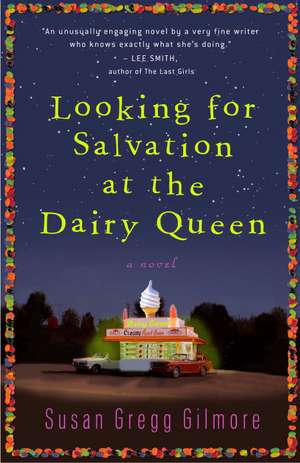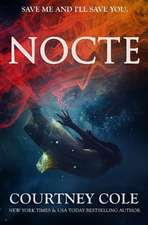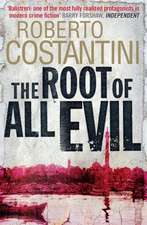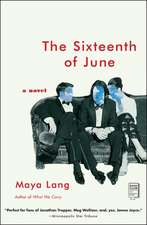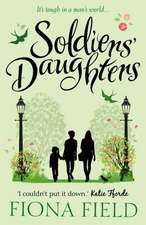Looking for Salvation at the Dairy Queen
Autor Susan Gregg Gilmoreen Limba Engleză Paperback – 31 mai 2009 – vârsta de la 14 până la 18 ani
It’s the early 1970s. The town of Ringgold, Georgia, has a population of 1,923, one traffic light, one Dairy Queen, and one Catherine Grace Cline. The daughter of Ringgold’s third-generation Baptist preacher, Catherine Grace is quick-witted, more than a little stubborn, and dying to escape her small-town life.
Every Saturday afternoon, she sits at the Dairy Queen, eating Dilly Bars and plotting her getaway to the big city of Atlanta. And when, with the help of a family friend, the dream becomes a reality, Catherine Grace immediately packs her bags, leaving her family and the boy she loves to claim the life she’s always imagined. But before things have even begun to get off the ground in Atlanta, tragedy brings her back home. As a series of extraordinary events alters her perspective–and sweeping changes come to Ringgold itself–Catherine Grace begins to wonder if her place in the world may actually be, against all odds, right where she began.
Preț: 100.66 lei
Nou
Puncte Express: 151
Preț estimativ în valută:
19.27€ • 19.82$ • 15.99£
19.27€ • 19.82$ • 15.99£
Carte tipărită la comandă
Livrare economică 17 februarie-03 martie
Preluare comenzi: 021 569.72.76
Specificații
ISBN-13: 9780307395023
ISBN-10: 0307395022
Pagini: 298
Dimensiuni: 133 x 204 x 17 mm
Greutate: 0.25 kg
Editura: Three Rivers Press (CA)
ISBN-10: 0307395022
Pagini: 298
Dimensiuni: 133 x 204 x 17 mm
Greutate: 0.25 kg
Editura: Three Rivers Press (CA)
Notă biografică
SUSAN GREGG GILMORE has written for the Chattanooga Times Free Press, the Los Angeles Times, and the Christian Science Monitor.
Extras
Chapter One In the Beginning
My daddy always said that if the good Lord can take the time to care for something as small as a baby sparrow nesting in a tree, then surely He could take the time to listen to a little girl in Ringgold, Georgia. So every night before I went to bed I got down on my knees and begged the Lord to find me a way out of this town. And every morning, I woke up in the same old place.
It was a place that I, Catherine Grace Cline, never wanted to call home, even though I was born and raised here. It was a place where everybody knew everything about you, down to the color of underwear your mama bought you at the Dollar General Store. It was a place that just never felt right to me, like a sweater that fits too tight under your arms. It was a place where girls like me traded their dreams for a boy with a couple of acres of land and a wood-framed house with a new electric stove. It was a place I always planned on leaving.
When I was no more than nine years old, a tornado tore right close to my house. I remember yelling at my little sister to run and hide in the basement. “Martha Ann,” I warned her, “if that twister hits this town, nobody’s even going to notice it’s gone.”
She started crying for fear she was going to be swept up in the clouds and carried away, and nobody, not even our daddy, would be able to find her. Turned out the only thing of any importance swept up in the sky that day was Mr. Naylor’s old hound dog. People said that Buster Black flew some fifteen miles, those long lonesome ears of his flapping like wings, before landing in the middle of some cornfield over in the next county.
Mr. Naylor walked for miles looking for that dad-gum dog till finally my daddy and the sheriff had to go pick him up. And just when that poor man finished planting a wooden cross by Buster’s little house, darn it, if that four-legged fool didn’t come limping back home, wagging his tail and acting like he’d found the Promised Land. Mr. Naylor was crying, praising the Lord, holding Buster Black in his arms. The local newspaper ran a color picture of them both right on the front page, like that dog was some kind of prodigal son.
“You know, Martha Ann,” I told her after reading about Buster’s triumphant return, “a tornado like that just might be our ticket out of here, but unlike that stupid old hound dog, we are not going to limp back home.”
My daddy said I was a little girl with a big imagination. Maybe. Or maybe I was a patient girl with a big dream, or a despairing girl waiting for her divine deliverance. But either way, I was going to hitch a ride out of Ringgold, whether it was on a fiery twister ripping a path through the Georgia sky or on a Greyhound bus rolling its way down Interstate 75.
Truth be told, I never even liked the name Ringgold. I mean, there’s nothing in these green rolling hills that even faintly resembles a ring of gold, a ring of anything for that matter. And believe me, me and Martha Ann looked, somehow figuring that if we could find a ring of trees or ancient rocks, then just maybe our living here would have some kind of meaning. But after years of searching, the best I could figure was that it was just these darn hills that I had stared at every morning from my bedroom window that formed the ring, the ring that had kept me hostage for the first eighteen years of my life.
Nobody much ever bothers to visit this town except the truckers who stop to fill their fuel tanks because they can get some of the cheapest gas in the state here and Mrs. Gloria Jean Graves’s second cousin, who has come up from Birmingham every year for the Thanksgiving holiday since before I was born. She always said it was refreshing to get away from the big city for a few days.
One time the governor came by for about twenty-five minutes to cut a ribbon at the new elementary-school library. Everybody in town came out to see him. Daddy made me wear a dress and tie my hair back in a ribbon, just like I was going to church. Six days a week my daddy didn’t care too much how I looked, but on Sunday mornings there was no negotiating the dress code. My sister and I wore our very best dresses with a fresh pair of cotton panties underneath, out of respect for the Lord, Daddy said.
I really didn’t think Jesus cared what I wore to Cedar Grove Baptist Church, or to see the governor for that matter, considering the fact that in every picture I ever saw of the King of Kings, He was wearing sandals and bundled up in nothing more than a big, baggy robe. But I figured this governor must be the most important person I was ever going to meet if Daddy was making me wear my navy blue Sunday dress with the white lacy collar and my patent-leather Mary Janes.
Martha Ann pitched such a fit about wearing her Sunday clothes that Daddy ended up leaving her at home with a neighbor. My little sister is a couple of years younger than I am, but she has always been a couple of inches taller, my guess from the time she came into this world. She has thick, dark brown hair and deep brown eyes like our mama. I have blue eyes like my daddy and straight brown hair that looks more like the color of a field mouse.
Martha Ann was a pretty baby and a pretty girl. Everything on her face just fits together so perfectly. When we were little, people said we looked just like twins for no better reason than we might have been wearing the same color shirt. You had to wonder if they were truly looking at us. But one thing was for certain, Martha Ann hated putting on her Sunday clothes even more than I did. She’d have much rather been in the library picking out a new book to read than waiting to look at some strange man cut a ribbon.
I told her that if she didn’t stop all that stomping and snorting, she was going to get left behind. And sure enough, she did. She had to spend the entire afternoon with Ida Belle Fletcher shucking eighty-four ears of corn for Wednesday-night supper over at the church.
Ida Belle said she cooked for the Lord, but all I knew was that she smelled like an unsavory combination of leftover bacon grease and Palmolive soap. She kept her big, round tummy covered with a tattered, old apron permanently stained with the meals of another day. The only time I saw her without that apron was when she was sitting in church, and then she kept it folded in her pocketbook.
My patent-leather shoe rubbed a blister on my big toe, but it was worth it. The governor turned out to be, if nothing else, the most handsome-looking man I’d ever seen. He wore a dark navy suit and a crisp white shirt that must have been starched so stiff, it could’ve stood up on its own. A red-and-blue-striped tie was pulled around his neck, and the tip of a white handkerchief was peeking out of his suit pocket. I had never seen a man dressed so fancy. He was in Ringgold for only a few minutes, and then he jumped in the back of a long, black car and sped off down Highway 151. I wanted to go with him so bad that for weeks after that, when I went to bed at night, I got down on my knees and begged the Lord to make me the governor’s daughter.
But He didn’t bother to answer that prayer either, not that I really thought that He would. God put me here for a reason, Daddy kept telling me; I just hadn’t figured it out yet.
Now I know my father was a certified man of God, but at a fairly young age, I decided that when it came to my destiny, he did not know what he was talking about. He certainly did not understand that there was nothing for me here in Ringgold, Georgia. Sometimes I wondered if he had noticed that this town had only one red light, one part-time sheriff, and one post office, which was nothing more than a gray metal trailer perched on a bunch of cinder blocks in the back of the Shop Rite parking lot.
There was one losing high-school football team and one diner, which has been serving pork chops on Thursdays since 1962. There was one fire station, but it burned down five or six years ago when the entire fire department, which amounted to the sum total of Edward and Lankford Bostleman, were spending the night at their aunt’s house over in LaFayette.
From the Hardcover edition.
My daddy always said that if the good Lord can take the time to care for something as small as a baby sparrow nesting in a tree, then surely He could take the time to listen to a little girl in Ringgold, Georgia. So every night before I went to bed I got down on my knees and begged the Lord to find me a way out of this town. And every morning, I woke up in the same old place.
It was a place that I, Catherine Grace Cline, never wanted to call home, even though I was born and raised here. It was a place where everybody knew everything about you, down to the color of underwear your mama bought you at the Dollar General Store. It was a place that just never felt right to me, like a sweater that fits too tight under your arms. It was a place where girls like me traded their dreams for a boy with a couple of acres of land and a wood-framed house with a new electric stove. It was a place I always planned on leaving.
When I was no more than nine years old, a tornado tore right close to my house. I remember yelling at my little sister to run and hide in the basement. “Martha Ann,” I warned her, “if that twister hits this town, nobody’s even going to notice it’s gone.”
She started crying for fear she was going to be swept up in the clouds and carried away, and nobody, not even our daddy, would be able to find her. Turned out the only thing of any importance swept up in the sky that day was Mr. Naylor’s old hound dog. People said that Buster Black flew some fifteen miles, those long lonesome ears of his flapping like wings, before landing in the middle of some cornfield over in the next county.
Mr. Naylor walked for miles looking for that dad-gum dog till finally my daddy and the sheriff had to go pick him up. And just when that poor man finished planting a wooden cross by Buster’s little house, darn it, if that four-legged fool didn’t come limping back home, wagging his tail and acting like he’d found the Promised Land. Mr. Naylor was crying, praising the Lord, holding Buster Black in his arms. The local newspaper ran a color picture of them both right on the front page, like that dog was some kind of prodigal son.
“You know, Martha Ann,” I told her after reading about Buster’s triumphant return, “a tornado like that just might be our ticket out of here, but unlike that stupid old hound dog, we are not going to limp back home.”
My daddy said I was a little girl with a big imagination. Maybe. Or maybe I was a patient girl with a big dream, or a despairing girl waiting for her divine deliverance. But either way, I was going to hitch a ride out of Ringgold, whether it was on a fiery twister ripping a path through the Georgia sky or on a Greyhound bus rolling its way down Interstate 75.
Truth be told, I never even liked the name Ringgold. I mean, there’s nothing in these green rolling hills that even faintly resembles a ring of gold, a ring of anything for that matter. And believe me, me and Martha Ann looked, somehow figuring that if we could find a ring of trees or ancient rocks, then just maybe our living here would have some kind of meaning. But after years of searching, the best I could figure was that it was just these darn hills that I had stared at every morning from my bedroom window that formed the ring, the ring that had kept me hostage for the first eighteen years of my life.
Nobody much ever bothers to visit this town except the truckers who stop to fill their fuel tanks because they can get some of the cheapest gas in the state here and Mrs. Gloria Jean Graves’s second cousin, who has come up from Birmingham every year for the Thanksgiving holiday since before I was born. She always said it was refreshing to get away from the big city for a few days.
One time the governor came by for about twenty-five minutes to cut a ribbon at the new elementary-school library. Everybody in town came out to see him. Daddy made me wear a dress and tie my hair back in a ribbon, just like I was going to church. Six days a week my daddy didn’t care too much how I looked, but on Sunday mornings there was no negotiating the dress code. My sister and I wore our very best dresses with a fresh pair of cotton panties underneath, out of respect for the Lord, Daddy said.
I really didn’t think Jesus cared what I wore to Cedar Grove Baptist Church, or to see the governor for that matter, considering the fact that in every picture I ever saw of the King of Kings, He was wearing sandals and bundled up in nothing more than a big, baggy robe. But I figured this governor must be the most important person I was ever going to meet if Daddy was making me wear my navy blue Sunday dress with the white lacy collar and my patent-leather Mary Janes.
Martha Ann pitched such a fit about wearing her Sunday clothes that Daddy ended up leaving her at home with a neighbor. My little sister is a couple of years younger than I am, but she has always been a couple of inches taller, my guess from the time she came into this world. She has thick, dark brown hair and deep brown eyes like our mama. I have blue eyes like my daddy and straight brown hair that looks more like the color of a field mouse.
Martha Ann was a pretty baby and a pretty girl. Everything on her face just fits together so perfectly. When we were little, people said we looked just like twins for no better reason than we might have been wearing the same color shirt. You had to wonder if they were truly looking at us. But one thing was for certain, Martha Ann hated putting on her Sunday clothes even more than I did. She’d have much rather been in the library picking out a new book to read than waiting to look at some strange man cut a ribbon.
I told her that if she didn’t stop all that stomping and snorting, she was going to get left behind. And sure enough, she did. She had to spend the entire afternoon with Ida Belle Fletcher shucking eighty-four ears of corn for Wednesday-night supper over at the church.
Ida Belle said she cooked for the Lord, but all I knew was that she smelled like an unsavory combination of leftover bacon grease and Palmolive soap. She kept her big, round tummy covered with a tattered, old apron permanently stained with the meals of another day. The only time I saw her without that apron was when she was sitting in church, and then she kept it folded in her pocketbook.
My patent-leather shoe rubbed a blister on my big toe, but it was worth it. The governor turned out to be, if nothing else, the most handsome-looking man I’d ever seen. He wore a dark navy suit and a crisp white shirt that must have been starched so stiff, it could’ve stood up on its own. A red-and-blue-striped tie was pulled around his neck, and the tip of a white handkerchief was peeking out of his suit pocket. I had never seen a man dressed so fancy. He was in Ringgold for only a few minutes, and then he jumped in the back of a long, black car and sped off down Highway 151. I wanted to go with him so bad that for weeks after that, when I went to bed at night, I got down on my knees and begged the Lord to make me the governor’s daughter.
But He didn’t bother to answer that prayer either, not that I really thought that He would. God put me here for a reason, Daddy kept telling me; I just hadn’t figured it out yet.
Now I know my father was a certified man of God, but at a fairly young age, I decided that when it came to my destiny, he did not know what he was talking about. He certainly did not understand that there was nothing for me here in Ringgold, Georgia. Sometimes I wondered if he had noticed that this town had only one red light, one part-time sheriff, and one post office, which was nothing more than a gray metal trailer perched on a bunch of cinder blocks in the back of the Shop Rite parking lot.
There was one losing high-school football team and one diner, which has been serving pork chops on Thursdays since 1962. There was one fire station, but it burned down five or six years ago when the entire fire department, which amounted to the sum total of Edward and Lankford Bostleman, were spending the night at their aunt’s house over in LaFayette.
From the Hardcover edition.
Recenzii
"This is Susan Gregg Gilmore’s first novel, but her voice is similar to that of Fannie Flagg. Readers of Southern stories will enjoy the poignant self-discovery journey of this lovable heroine."
—Tampa Tribune
"Gilmore tells her tale with gentle humor and genuine regard for her characters."
—Omaha World-Herald
“If I had to make a comparison, I would compare Susan Gregg Gilmore to Fannie Flagg, but Gilmore more than holds her own. This is an unusually engaging novel by a very fine writer who knows exactly what she is doing.”
—Lee Smith, author of The Last Girls
“Susan Gregg Gilmore’s debut novel, Looking for Salvation at the Dairy Queen, is storytelling at its best, entertaining and lively and full of surprises. Catherine Grace Cline, the endearing witty heroine, gives her domestic journey titles of Biblical proportion as she finds more than salvation along the way.”
—Jill McCorkle, author of Carolina Moon
From the Hardcover edition.
—Tampa Tribune
"Gilmore tells her tale with gentle humor and genuine regard for her characters."
—Omaha World-Herald
“If I had to make a comparison, I would compare Susan Gregg Gilmore to Fannie Flagg, but Gilmore more than holds her own. This is an unusually engaging novel by a very fine writer who knows exactly what she is doing.”
—Lee Smith, author of The Last Girls
“Susan Gregg Gilmore’s debut novel, Looking for Salvation at the Dairy Queen, is storytelling at its best, entertaining and lively and full of surprises. Catherine Grace Cline, the endearing witty heroine, gives her domestic journey titles of Biblical proportion as she finds more than salvation along the way.”
—Jill McCorkle, author of Carolina Moon
From the Hardcover edition.
Descriere
For fans of Fannie Flagg and Sheri Reynolds, this witty and unforgettable debut novel tells of a young Southern girl caught between two worlds, and coming of age in the space between them.
